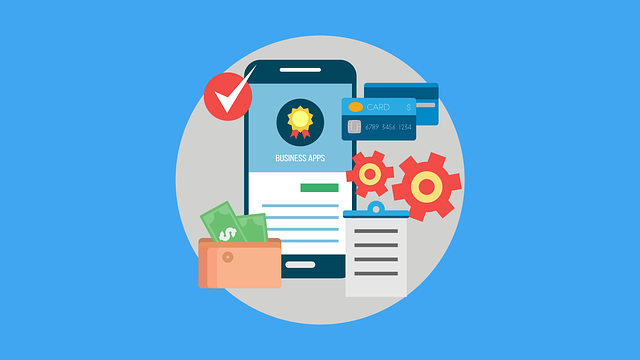AI robotic process automation (RPA) is transforming business operations by automating mundane tasks with intelligent bots powered by machine learning and natural language processing. In hospitality, AI upsell algorithms for dine-in menus use customer data to offer personalized menu recommendations, increasing sales and fostering loyalty through enhanced dining experiences. These algorithms analyze past purchases, preferences, and real-time behavior to suggest relevant add-ons or upgrades at the point of order, boosting satisfaction and efficiency while freeing waitstaff from manual pitches. While AI offers significant advantages like increased speed and customer focus, challenges such as data privacy, robust data management, and algorithmic fairness must be addressed for widespread adoption. Future developments include complex decision-making robots, improved natural language processing, and adaptive learning based on feedback.
“Discover the transformative power of Artificial Intelligence (AI) in business through Robotic Process Automation (RPA). This article explores how RPA, powered by AI, is revolutionizing industries like retail and hospitality. From enhancing customer experiences with intelligent upselling of dine-in menu items using AI algorithms to examining the broader implications, we delve into the benefits, challenges, and future prospects of this cutting-edge technology. Get ready to understand why AI-driven RPA is a game-changer.”
- Understanding AI Business Robotic Process Automation (RPA)
- AI Upsell Algorithms for Dine-in Menus: Enhancing Customer Experience
- Benefits, Challenges, and Future of AI-driven RPA in Retail and Hospitality
Understanding AI Business Robotic Process Automation (RPA)

AI Business Robotic Process Automation (RPA) is a game-changing technology that uses intelligent bots to automate repetitive, rule-based tasks across various business processes. By leveraging machine learning and natural language processing algorithms, RPA systems can understand, interpret, and execute tasks with minimal human intervention. This not only enhances operational efficiency but also reduces costs and minimises errors.
One notable application of AI RPA is in the hospitality industry, particularly for upsell algorithms in dine-in menus. These algorithms use AI to analyze customer preferences, order history, and real-time behavior to suggest complementary items or upgrades that can enhance their dining experience. This personalized approach not only increases sales but also improves customer satisfaction, fostering a loyal customer base.
AI Upsell Algorithms for Dine-in Menus: Enhancing Customer Experience

AI upselling algorithms for dine-in menus are transforming the way restaurants interact with customers, enhancing the overall dining experience. By analyzing customer behavior and preferences, these intelligent systems can suggest complementary items or upgrades at the point of order, increasing both sales and customer satisfaction. For instance, if a patron regularly orders a specific entree, the AI might recommend a premium side dish or a signature dessert based on past purchases.
This personalized approach not only upsells items but also builds stronger relationships between customers and the establishment. Moreover, it allows waitstaff to focus on providing excellent service rather than manually pitching add-ons, leading to faster service times and more efficient operations.
Benefits, Challenges, and Future of AI-driven RPA in Retail and Hospitality

The integration of Artificial Intelligence (AI) into Robotic Process Automation (RPA) is transforming various industries, including Retail and Hospitality. One notable application is the use of AI to enhance customer experiences through intelligent upsell algorithms tailored for dine-in menus. These algorithms analyze past purchase data, customer preferences, and real-time behavior to suggest relevant additional items, increasing both sales and satisfaction. By automating these recommendations, businesses can save time and resources while offering personalized services that foster customer loyalty.
Despite its advantages, AI-driven RPA faces challenges such as data privacy concerns, the need for robust data management practices, and ensuring algorithmic fairness and transparency. As AI continues to evolve, addressing these issues will be crucial for widespread adoption in Retail and Hospitality. The future holds immense potential, with AI-powered robots capable of complex decision-making, natural language processing for better customer interactions, and adaptive learning to continuously improve operations based on feedback loops.
AI business Robotic Process Automation (RPA) is transforming industries by streamlining tasks and enhancing customer experiences, as evidenced by its application in AI upsell algorithms for dine-in menus. The benefits of RPA are clear, from increased efficiency to cost savings and improved accuracy. However, challenges such as implementation complexity and data privacy concerns require careful navigation. As we look ahead, the future of AI-driven RPA in retail and hospitality holds immense potential for innovation, promising even better customer experiences through intelligent automation.
